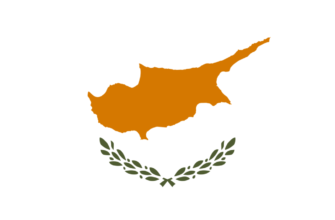What the flag of Armenia looks like:

Yeraguyn (Armenian) is the state flag of Armenia. The symbol of Armenia, approved at the state level. Diving into the history of its origin and further changes, you can see how much it has changed.
History of the flag
There have been many flags in the rich history of the Armenian state. In ancient times, the dynasties in power depicted a variety of animals on their flags to symbolize a character trait. They were hoisted on the battlefield just before the beginning of military battles, as a kind of symbol.
In the 19th century, when Armenia was divided between the Ottomans and the Persians, it had no flag at all. Until a certain priest from the Catholic Church designed a red-green-white tricolor. In the sign system, this flag denoted «Red Sunday» (the first Easter Sunday) and «Green Sunday of Easter.

The modern tricolor was first adopted as the symbol of the country in 1918, when the First Republic of Armenia was formed. These are the colors of the late Rubenid dynasty (the Cilician state of the late 13th-early 14th centuries). There were proposals to adopt the rainbow color flag as the official flag, but they were rejected.
In 1922, after the proclamation of the Armenian SSR, a new flag was designed, which lasted a month. Then the republic was incorporated into the Transcaucasian SSR, whose flag was a red rectangle with a hammer and sickle inside a star. The inscription ZSFSR was a semicircle at the star. And this version of the flag existed for a short time, until 1936, when the Republic of Armenia presented its own flag.

During the existence of the Soviet Union, Armenia’s flag changed several times. The final version was as follows: a red cloth, a blue stripe in the middle (1/4 of the total field), and on the upper left — a hammer and sickle, with a small star above them.
-
1922 – 1937 -

1937—1940 -

1940—1952 -

1952—1990
On the day of Armenia’s independence, August 23, 1990, it was decided to return the pre-Soviet tricolor flag.

Description
The Armenian flag looks like a rectangular cloth. It consists of three horizontal stripes of equal length and width. The upper stripe is red, the middle stripe is blue, and the lower stripe is orange. The ratio of length to width of the flag is 1:2.
Flag colors
Officially there are three colors of the flag — red, blue and orange, they are led by the state standard. There are cases when flags with faded shades of colors were used.
Meaning
The constitutional meaning of the colors of the flag is established as follows:
- The red color is the symbol of the Armenian highland, the survival of the Armenian people’s struggle, the independence and freedom of Armenia and the Christian faith;
- Blue is a symbol of the life of the people under a peaceful sky;
- Orange is a sign of the ability to work and the abundance of talent of the people of Armenia.
The red color is the symbol of the Armenian highland, the survival of the Armenian people’s struggle, the independence and freedom of Armenia and the Christian faith;
- Red is the Armenian genocide and its victims among the million and a half killed;
- Blue — the clear blue Armenian sky;
- Orange — the symbol of bravery and courage of Armenian men and women.
The history of the development of the Armenian flag is very rich and has its roots deep in the past. If we look back in history, we can see that the modern symbol of the state has nothing in common with the ancient flag, which Armenians used to raise the fighting spirit before battles.
General information about Armenia
| Official language | Armenian |
| Capital | Yerevan |
| Territory | 29,743 km2 |
| Population | 2,986,100 people |
| Currency | Armenian Drama |
| Phone Code | +374 |










I love the Armenian flag! The colors are so vibrant and rich in meaning. When I visited Armenia last summer, seeing the flag everywhere made me feel a deep connection to its culture. It was truly inspiring! Can’t wait to learn more about its history!
As a guy who’s travelled a lot, spotting the Armenian flag always reminds me of the amazing hospitality I experienced there. One time, locals invited me for homemade food—such a warm moment! Truly grateful for those connections made under that beautiful tricolor flag.